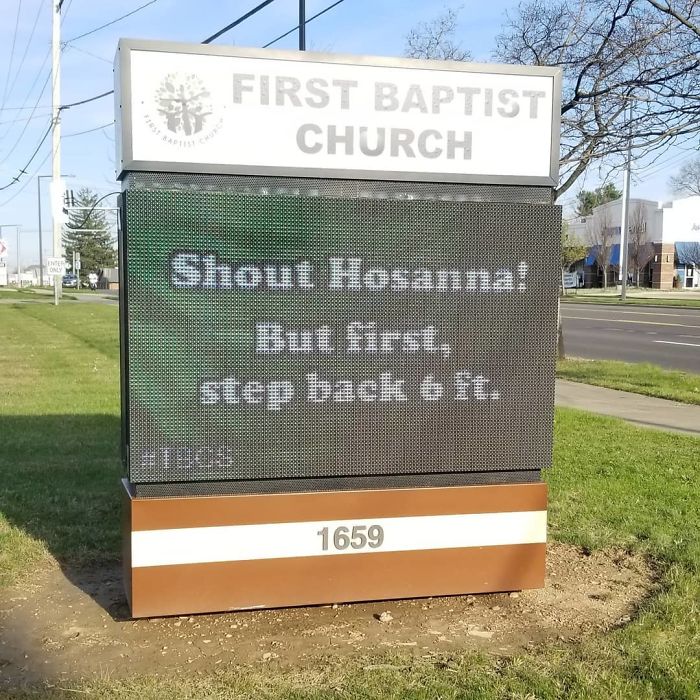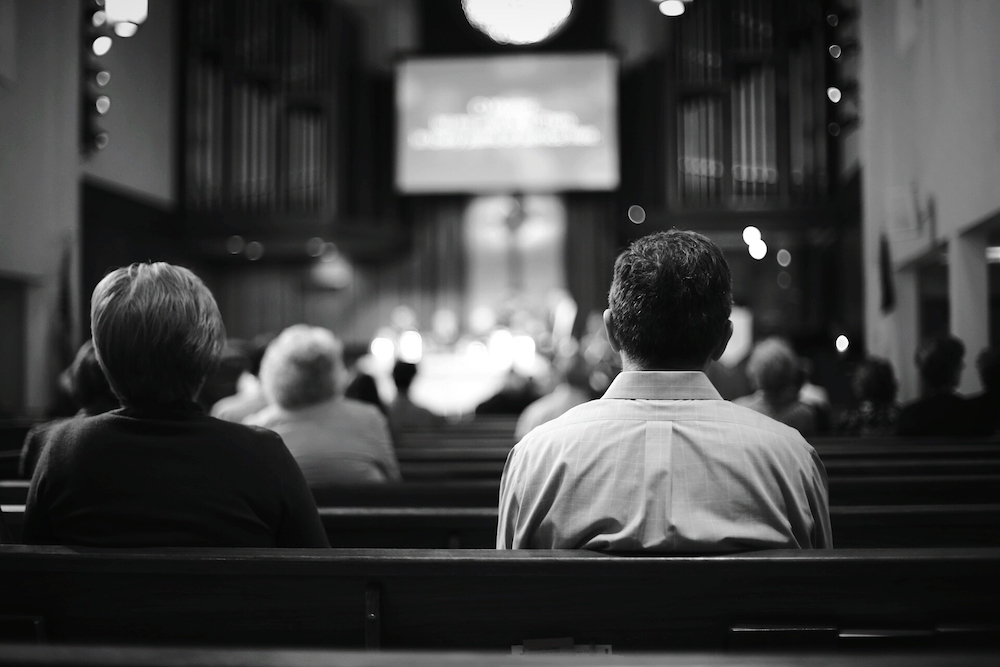Christ and calamity go together. As Jesus said: “In the world you will have tribulation. But take heart; I have overcome the world” (John 16:33). When calamity strikes, you need Jesus.
Harold L. Senkbiel
(2020).
Christ and calamity go together. As Jesus said: “In the world you will have tribulation. But take heart; I have overcome the world” (John 16:33). When calamity strikes, you need Jesus.
Harold L. Senkbiel
(2020).
Previously I have discussed the pathway of Mercy as a plausible construct to change the narrative from anarchy and lawlessness. Mercy is a compassionate love and care for others. God so loved that He gave us His Son Jesus Christ to die for us. That brand of love displayed on the cross is the heartbeat of mercy. We are to become living illustrations of God’s hesed love. The Mercy Pathway begins in our heart, is expressed in the home where we have our most cherished relationships, to the Church which becomes the collective voice of God’s passionate love and care for others, and finally how that society can become revolutionized by this brand of divine care and regard for others.
Tucked away in the New Testament is a one chapter twenty-five verse narration of a run-away slave named Onesimus. In what can only be a “Divine Moment”, Paul the prisoner, led Onesimus to salvation. It is in this context that Paul writes a letter to Philemon to receive Onesimus back not as a slave but a brother in Christ; “I appeal to you for my child Onesimus, whose father I became in my imprisonment. (Formerly he was useless to you, but now he is indeed useful to you and me)……”(vv.10-11).
“In Philemon, Paul built his case on the relationships that emerge in Christ. It is a Christian defense against the institution (of slavery). While others argued for the brotherhood of man,31 (Stoic Philosophers) Paul rooted his thoughts in the “in Christ” relationship. All “in Christ” were united, and they participated in a common task of knowing Christ. Right thinking people wish the best for their families, and right-thinking Christians wish the best for their spiritual brothers and sisters as well. Thus, manumission (release from slavery) of slaves logically proceeds from the message of the gospel. All persons are equal, and in Christ that equality can be freely expressed (Gal 3:28). “What this letter does is to bring us into an atmosphere in which the institution of slavery) could only wilt and die.”[1]
Slavery was collapsing in the Roman Empire. Christianity accelerated its demise. These twenty-five verses paint an amazing picture of Mercy being lived out fully in the New Testament Church. Keep in mind that Mercy is a compassionate care and love for all as illustrated in Christ Jesus. “28 yThere is neither Jew nor Greek, there is neither slave7 nor free, zthere is no male and female, for you are all one in Christ Jesus. 29 And aif you are Christ’s, then you are Abraham’s offspring, bheirs according to promise”. [2]
31 The Stoic philosophers took that approach, and it is a valid argument. Its weakness is that Christians know more than that.
[1] Melick, R. R. (1991). Philippians, Colossians, Philemon (Vol. 32, pp. 344–345). Nashville: Broadman & Holman Publishers.
y [ver. 14; ch. 5:6; 6:15]; See Rom. 3:30; 1 Cor. 12:13
7 For the contextual rendering of the Greek word doulos see Preface
z 1 Cor. 11:11
a See Rom. 9:7; 1 Cor. 3:23
b ch. 4:1, 7; Rom. 8:17; Eph. 3:6; [ch. 4:28; 2 Tim. 1:1; Titus 1:2; Heb. 9:15]
[2] The Holy Bible: English Standard Version. (2016). (Ga 3:28–29). Wheaton, IL: Crossway Bibles.

I am convinced the journey of MERCY is an appropriate answer to the social unrest that we witness in our cities. Lawlessness is not an answer to lawlessness. I would argue for mercy because this journey begins in the hearts of humanity first. The etymology of mercy must begin with original languages. I begin with the Hebrew Old Testament.
To understand meaning we must first understand the trajectory of a word. Where or to whom is it pointing us toward. I would draw attention to a noun form of mercy (re’hem) and a verbal form of mercy (re’hum). The noun form is used of a mother’s womb suggesting that God’s compassionate unfailing love is upon the formation of life and the gentle care of growth. The verbal form of mercy is “merciful” implying that you and I can be merciful after the order or illustration of God’s unfailing tender love for us. There are 13 occurrences of the verbal form (re’hum) in the Old Testament that shows a trajectory of how we are to follow God’s example. Here is a list of these references: Exodus 34:6; Deuteronomy 4:31; 2 Chronicles 30:9; Nehemiah 9:17, 9:31; Psalm 78:38, 86:15, 103:8, 111:4, 112:4, 145:8; Joel 2:13; Jonah 4:2. I would strongly suggest that you first write these verses out. Highlight the referencing of “merciful” and/or “compassionate.” Write out the action that is being done and or the action being asked of us to perform. Use your responses as a prayer model between you and God.
Our journey of mercy begins with our heart and then moves to the Home. It is in the context of our home the unfailing love of God is on display. What is the current state of the home? Consider some basic changes of the home since 1970.
Add to this list of changes the fact 23% of children live in single parent homes in America. We lead the world in this category as of December 2019 according to Pew Research.[1]
The narrative of racial injustice is stifled if not blocked because of so much strife, struggle, and brokenness within our most important institution – the Family! Let’s be clear about a key biblical truth in Matthew 23:23. The Holy Trinity of Action – Justice, Mercy, and Faithfulness are declared to be the “WEIGHTIER” matters of community behavior. Acting out this trinity keeps us grounded and centered as citizens. When we are not in alignment with God’s words, it is extremely hard to get into an alignment with our world.
If you are going to remodel your home do these – JUSTICE, MERCY, FAITHFULNESS!
Shepherds Advantage provides Servant Leadership that helps people close the gap between where they are and where they want to be. Shepherds Advantage closes that gap by providing Leadership Development, Key Note Speaking, and Executive Coaching.
[1] https://www.pewresearch.org/fact-tank/2019/12/12/u-s-children-more-likely-than-children-in-other-countries-to-live-with-just-one-parent/ ACCESSED 4 June, 2020.
Podcast: Play in new window | Download (Duration: 23:29 — 32.3MB) | Embed

At the close of week 10 of the national quarantine and now attempting to reopen the doors of the church, we are experiencing the Good, Bad, and Ugly. WOW, we are witnessing disruption layered on top of disruption. Amad Arbery, George Floyd, Antifa, Anarchist, Confused Media – What are we to make of all the confusion? The pre-existing storyline for the church community was the difficulty of re-starting the church while people have had 10 weeks to start new habits. There is a spike in the fatigue of spiritual leaders. The Sabbath Rest could not be more important than NOW!
As you examine the data set that concluded week 10 of our national quarantine, we are now seeing that 72% of churches are going to maintain a hybrid format in their churches – Both live sanctuary services as well as Live-On-Line. Pre-COVID, online services were more of a novelty. Now they are a necessity.
There is not only an investment being made into creativity of the online church, but how that experience can be transferred into the church at large. As a side note, it is being reported that 5%-8% of churches will continue an online only option for their congregation through the summer months.
We are now seeing clearly that restarting the church is not as simple as opening the doors. Depending on the location of your church in America successful restarts are between 10% – 29% capacity of the church building is being viewed as a success. Keep in mind that we are only 3-4 weeks for some churches into a restart. There is still a national feeling the church will fully recover, however, that recovery is proving to be far more complex.
When it comes to restarting the Children and youth Ministry it is relatively split between starting back in July while others are opting to start once school begins in the fall. As you drill into this category of data it is revealing that 10+ weeks of new habits are now part of the routine in people’s lives. People will not change those new habits suddenly.
Layered on top of an already heavy load of restarting our churches is the issue of Amad Arbery, George Floyd, Antifa, Anarchists, and a confused media. This combination of issues is enough to break any good leader. There is a lot at stake currently. With that said there are a few things that I would point out. First of all, I am writing daily bog articles on the history of enslavement and possible pathways of nurturing a new narrative. August 2019 marked the 400th anniversary that enslavement began at Jamestown, Virginia. While progress has been made, it feels like we are a thousand miles away from our goal. I have been writing about the influence of MERCY upon our heart first, then our home, to our church, then to our society. There is no exclusivity on MERCY, but everyone must respond and allow its influence to change us at the heart level .
Let me be clear, history does not give us a positive illustration of outcomes when lawlessness is used to combat lawlessness. History does give us some illustrations of peaceful protest that can impact a nation.
Consider Gandhi’s life in leading India to liberation. Gandhi would declare, “Be the change you desire to see.” However, January 30, 1948 while standing on the steps to enter a building for prayer 3-shots rang out and Gandhi’s life ended.
Martin Luther King who was greatly influenced by Gandhi’s life’s work also followed the path of peaceful resistance. While sitting a jail cell in Alabama a reported asked, Dr. King do you hate the white man?” to which King responded, “I don’t hate any man! Hatred is to great of a burden to bear!” Yet on April 4, 1968 Dr. King was shot by James Earl Ray and would die later in the hospital in Memphis, Tennessee.
The impact of both men still lives on to this day. I would contend that MERCY must be the pathway to change the narrative to give us new opportunities to hope. Mercy is something the anarchist will never understand.
LINKS
Shepherds Advantage Leadership Podcast is now on iTunes – SUBSCRIBE
Shepherds Advantage Leadership Podcast is now on Stitcher – SUBSCRIBE
FREE GIFT – “Servant Leadership Questions” – Click on the icon at the bottom of the page
Executive Coaching Service– Private message me for details on this customizable service
Leadershift by John Maxwell
Q&A – Contact me at ShepherdsAdvantage@gmail.com
Music: “Gratitude Mood” by David Arivett. You can learn more about his music by clicking on his name. THANKS DAVID!

I am convinced the journey of MERCY is an appropriate answer to the social unrest that we witness in our cities. Lawlessness is not an answer to lawlessness. I would argue for mercy because this journey begins in the hearts of humanity first. The etymology of mercy must begin with original languages. I begin with the Hebrew Old Testament.
To understand meaning we must first understand the trajectory of a word. Where or to whom is it pointing us toward. I would draw attention to a noun form of mercy (re’hem) and a verbal form of mercy (re’hum). The noun form is used of a mother’s womb suggesting that God’s compassionate unfailing love is upon the formation of life and the gentle care of growth. The verbal form of mercy is “merciful” implying that you and I can be merciful after the order or illustration of God’s unfailing tender love for us. There are 13 occurrences of the verbal form (re’hum) in the Old Testament that shows a trajectory of how we are to follow God’s example. Here is a list of these references: Exodus 34:6; Deuteronomy 4:31; 2 Chronicles 30:9; Nehemiah 9:17, 9:31; Psalm 78:38, 86:15, 103:8, 111:4, 112:4, 145:8; Joel 2:13; Jonah 4:2. I would strongly suggest that you first write these verses out. Highlight the referencing of “merciful” and/or “compassionate.” Write out the action that is being done and/or the action being asked of us to perform. Use your responses as a prayer model between you and God.
History has demonstrated lawlessness is never an appropriate solution to lawlessness. It is however a vicious revolving door that leads to no-where. If we are serious about a response to slavery and the injustices that occurred coupled with the injustices of other ethnicities, we must begin with our heart first. Embrace God’s illustration of MERCY first in order to know what our response should be toward others. August 2019 marked the 400th anniversary of enslavement in American history. Progress has been made, yet it feels a thousand miles away from us yet. What if 2020 became a year marked by mercy? It begins in my heart. The next step of the journey of mercy is the HOME!
10 And as Jesus2 reclined at table in the house, behold, many gtax collectors and sinners came and were reclining with Jesus and his disciples. 11 And when the Pharisees saw this, they said to his disciples, h“Why does your teacher eat with gtax collectors and sinners?” 12 But when he heard it, he said, “Those who are well have no need of a physician, but those who are sick. 13 Go and learn iwhat this means: j ‘I desire mercy, and not sacrifice.’ For kI came not to call the righteous, lbut sinners.” [1]
2 Greek he
g ch. 11:19; See ch. 5:46
h [Luke 15:2]
g [See ver. 10 above]
i ch. 12:7
k [Luke 15:7; John 9:39]
l 1 Tim. 1:15
[1] The Holy Bible: English Standard Version. (2016). (Mt 9:10–13). Wheaton, IL: Crossway Bibles.
August 2019 marked 400 years since the beginning of enslavement at Jamestown, Virginia. The Emancipation Proclamation was signed in 1863, but only after the start of a grisly Civil War and centuries of inhumane treatment of black people. Even after black Americans’ federal legal status was changed, the 15th Amendment wasn’t ratified until 1870 and the civil rights movement didn’t climax until the 1950s and 1960s. Despite real progress through the years, America is at yet another cross-roads or is it circling the same Round-About?[1]
Consider some data points of American thought as of late 2019.[2]
The million-dollar question remains where do we start? It is sad to see how public discourse has been severely damaged, how that reconciliation is hindered by evil intent, and that lashing out on any level is appropriate. That said we are not left without HOPE! As a believer in Christ Jesus I believe the model of Mercy holds the Key to injustices. That begins with an inward journey of the meaning and experiences of Mercy in our life. From the heart Mercy flows to our Home so that we can see how Mercy functions in our most sacred relationships. Out of the Home, Mercy flows in and through the Church. It is here we join forces together to speak and live out the principles of Mercy as Christ followers before a needy community. This should ultimately equate to a community wide impact that touches our world by means of a compassionate and merciful response to the hurts of others.
I will write further on the Biblical understanding of Mercy in the next article.
[1] Where Do We Go From Here?” Reimagine Group & Barna Research Group (Ventura, CA. 2019) p.6.
[2] Ibid. p.12.

If there is a serious interest in understanding May 26, 2020 George Floyd, you really need to return to August 16, 1619. What happened in 1619? The slave ship San Juan Buatista bound for Veracruz was attacked by another ship named White Lion. The White Lion landed at Jamestown with the very first slaves in the New World. This is where the story begins for Americans.
My personal story began as a young white, naïve Anglo-Saxon Junior High School student who just wanted to play basketball during the Martin Luther King era. To my parents’ credit they never allowed offensive language to be spoken about any ethnic people group in our home.
Consequently, my best friends were black. We just wanted to play basketball! I was invited to eat an evening meal at their home, and we invited them into our home for a meal. Race or color was never a topic of discussion in either home. Honestly, as young teenage boys we were confused by the riots of that day, and honestly we never really understood what racism and rioting all was about. It was not until I attended Fort Wayne Bible College and prepared my first College level research paper that I chose to write a comparison paper of Dr. King and Nelson Mandela.
As a white Anglo I walk through our neighborhood and never worry about being profiled. I confess that I do not understand being looked at with suspicion in the marketplace. I have never experienced the humiliation of drinking from “colored only” fountains, riding in the back of the bus, or lynching’s. So where are we to begin working through a biblical response. Ezekiel 9, God calls us to lament and grieve over the abominations and injustices in the land. A clear abomination began in 1619 with the first slaves arriving at Jamestown. Ultimately, the story of Civil Rights is not just a black issue – it is a national issue that we should all own.
There are two resources that have been an influence upon my thinking. The first was wrote in 2001, Letters Across The Divide and secondly, The God Impulse: The Power of Mercy In An Unmerciful World – 2018. Also, in 2019 there was a joint research project by the Reimagine Group and Barna Research Group, entitled, Where Do We Go From Here. This research outlines the journey of Mercy and its function in the hearts of individuals moving out to ultimately touch a world. In the coming blog articles, I will write about what I have learned. Believe me, I have so much more to learn on this topic.

I have been participating in a national survey on the Pulse of the Church during COVID-19. This has been real-time data that is gathered from over 10,000 churches. Without a doubt this has been one of the most interesting studies of real-time thought and corresponding behavior that I have ever studied. The Barna Group, Carey Nieuwhof, and Gloo Technologies have been the primary drivers of this research on the State of the Church 2020.
This past week as I was reviewing the current data sets of information there was something that caught my eye. When churches were asked, “What is the greatest priority for your church this week?” it was interesting to note that preaching a gospel message of hope and encouragement took a back-seat to Hand Sanitizer and Live Streaming Technology. By comparison when church attendees were surveyed, their response was in stark contrast. Over 80% of parents stated they were experiencing feelings of being over-whelmed. Hit the PAUSE BUTTON! Stop for just one minute and allow this information to get into your spirit being. How is it possible that during the same week in America the primary message and need is 180 degrees out from each other?
I simply cannot answer that question. However, I can trust what I know according to scriptures. Jesus Christ did not come to earth as the Son of God – Son of Man to enhance the religious structures of the day. He was a different spiritual leader, with a very different message, touched people in radically different ways, and yes, He over-turned the money changers tables. Jesus invited people to Come and See, Come and Be With Me, Come and Be My Disciples. As the Son of God, He demonstrated the miracle working power as visual proof to a doubting world. As the Son of Man, He wept and ministered to the broken.

If you listen carefully to those in your circle of influence, you will hear people discussing, “I am over this quarantine! We are finding out that statement is not interrupted to mean that I am fully ready to re-engage life pre COVID. So, what is the problem?
Before we go full spiritual tactical on people let’s pause for a moment to analyze what has transpired pre-COVID to the present.
Now that our nation is re-opening, the early indication is that churches are experiencing a wide array of hesitation about returning to church. Stop and think about this, we all have been living with error messages that our sensory receptors have been screaming at us – ERROR, ERROR, ERROR! Ten weeks of shut down and quarantined is not normal. Allowing people to work at their pace is KEY. Simply opening doors for business does not mean an immediate return. What do we do?
First of all, recognize that “normal” has shifted. Our social equilibrium is radically off-balance. Time is needed to regain our footing and comfort level for social re-engagement. Let’s be honest, pre-COVID, we all were taking a lot for granted. A wise theology professor once stated to me, Do not doubt in the darkness what God has shown to you in the light! Meaning…
36 “Teacher, which is the greatest commandment in the Law?” 37 Jesus replied: “‘Love the Lord your God with all your heart and with all your soul and with all your mind.’[a] 38 This is the first and greatest commandment. 39 And the second is like it: ‘Love your neighbor as yourself.’[b] 40 All the Law and the Prophets hang on these two commandments.” Matthew 22:36-40 NIV.
With tender loving care we will all get through this historical moment.
Podcast: Play in new window | Download (Duration: 25:29 — 35.0MB) | Embed
So that we establish a basis for this Podcast, the data sets are from the Barna Group’s study dating back to 2000. This is a 20-year research to measure national trends. YES, these trends may look different in your location, but when taken as a national view, these figures do not lie.
So let’s understand the magnitude of this research. Barna Group has been gathering survey data on the long-term shifts that have occurred in the United States over the last several decades. In this report, we explore data collected among 96,171 surveys over more than 20 years, giving us powerful insight.
Consider the categories that were determined as a result of this study.
Let’s start by looking at how Americans relate to Christianity, using three segments: practicing Christians, non-practicing Christians and those who are not Christians.
Practicing Christians identify as Christian, agree strongly that faith is very important in their lives and have attended church within the past month.
Non-practicing Christians are self-identified Christians who do not qualify as practicing.
Non-Christians are U.S. adults who do not identify as Christian.
The first and perhaps most significant change is that practicing Christians are a shrinking segment of the entire population. In 2000, 45 percent of all those sampled qualified as practicing Christians. That share has consistently declined over the past 19 years. Now, just one in four Americans (25%) is a practicing Christian. In essence, the share of practicing Christians has dropped by nearly half since 2000.
It is interesting to note that the declining numbers split between being a Christian but not attending Church and dropping our totally – attendance and identifying as a Christian. This shift in part is what is giving rise to atheism and agnostics in the American belief systems.
Another interesting reality that cannot be blamed on Covid-19 is that one-third fewer people are attending church than in 1993. Church attendance apexed in 2009-2010 and has been in decline since that time. When you examine this fact closely you see a rise of Millennials and Gen-Zers, along with church scandals, and what role does politics play in the church.
If church attendance trends are analyzed by generation, interesting patterns emerge. Declines in church attendance took place among Elders (14 %) and Boomers (13 %), especially after 2012. That’s remarkable considering it’s a common assumption that people become more religiously active as they age. While health ailments could impair the ability of some Elders to make it to weekly services, that is less likely to be the case with Boomers.
Consistency of Bible-Reading Has Remained Steady for Nearly a Decade
Those who are committed to the spiritual practice of reading the Bible have stayed extremely consistent over the decades. Despite some ups and downs over the years, nearly the same percentage of U.S. adults today.
LINKS
Shepherds Advantage Leadership Podcast is now on iTunes – SUBSCRIBE
Shepherds Advantage Leadership Podcast is now on Stitcher – SUBSCRIBE
FREE GIFT – “Servant Leadership Questions” – Click on the icon at the bottom of the page
Executive Coaching Service– Private message me for details on this customizable service
Leadershift by John Maxwell
Q&A – Contact me at ShepherdsAdvantage@gmail.com
Music: “Gratitude Mood” by David Arivett. You can learn more about his music by clicking on his name. THANKS DAVID!